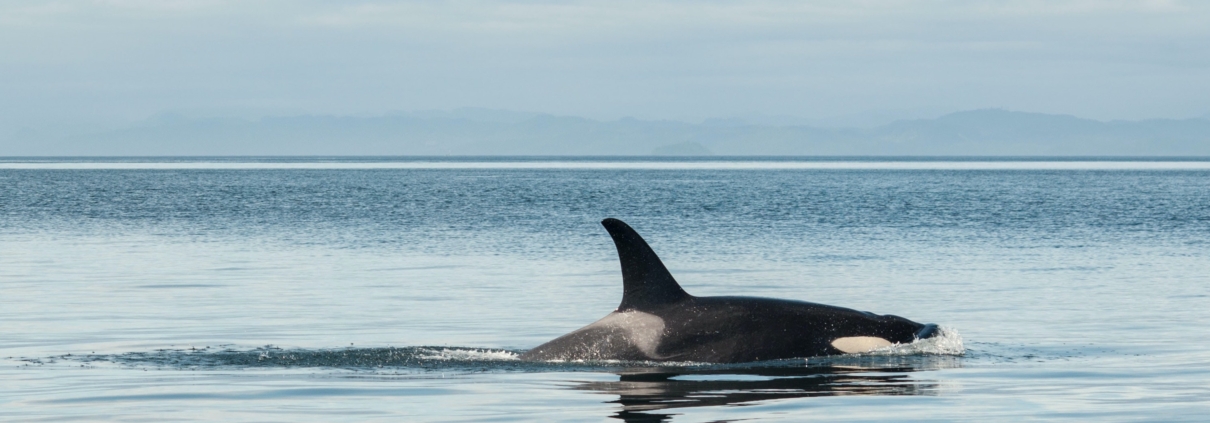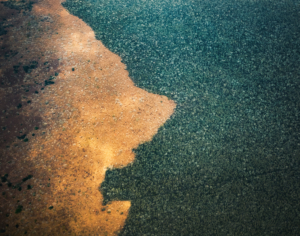She is Nature, not natural capital
Latest posts
Share:
How might Western culture give Nature the reverence it deserves?
“Orcas have inherent rights.” So proclaimed two US cities bordering the Salesh Sea where the last 73 southern-resident Orcas reside under threat from declining salmon and warming oceans.
This assertion includes the Orcas’ “right to life, autonomy, culture, free and safe passage, adequate food supply from naturally occurring sources, and freedom from conditions causing physical, emotional, or mental harm.”
This is the latest victory for advocates of the ‘Rights of Nature’. This concept argues that all living things have inalienable rights, just like humans (or indeed corporations), and these rights should be defended in law when threatened.
Last year, Wasafiri supported the Blue Climate Summit, held in Tahiti with the aim of accelerating ocean-based solutions to climate change. Whilst delegates came from all over the world, many were Polynesian and part of a profound Oceanic culture that spans from the Maori to the Hawaiians.
Polynesians revere the Ocean as an ancestor, and, like many indigenous cultures, attribute a spiritual status to all living things. Humans are to treat Nature with the same sense of honour and care that one would afford one’s Grandma. Why wouldn’t you? It is Nature that bestows us with water, food, oxygen, shelter, beauty, and joy.
In contrast, Western culture sees humans as having dominion over Nature, with the Oceans, Forests, and Soils as God-given riches for people to exploit. In almost every sentence, I embarrassed myself in front of Polynesians. I spoke of “natural capital”, “marine governance”, and “fish stocks”. These well-meaning terms only make sense if you are discussing Nature as yours to own or control. Even “sustainability” felt awkward, as if our only goal was to ensure living things were maintained at a minimum level to continue their usefulness to humans.
No wonder we are witnessing interlocking crises for the climate, biodiversity, soils, water, and oceans. We have forgotten our place.
In the words of Deen Sanders, Worimi man and co-author of an excellent new World Economic Forum report on indigenous knowledge and conservation, “My culture reminds us that the earth, the air, the water is not ours for the hoarding. Nature belongs to none of us. We belong to it.”
When tackling complex social or environmental issues, Systemcraft asks us what hidden assumptions or mindsets perpetuate the damaging dynamics. What are the informal incentives that mean we collectively continue to act in unhelpful ways?
We are often blind to these because they are the cultural norms and values in which we swim. It is only when we move beyond our usual circles, when we listen deeply to those with different lived experiences, that our own assumptions are revealed.
A third of the Earth’s territory is stewarded by indigenous people or held as common land, and 91% of these lands are in good or fair ecological condition – a statistic that embodies the kind of positive anomaly that systems leaders must look for when seeking a way out of a crisis.
Indigenous cultures have much to teach us about living within planetary boundaries; and repairing Western culture’s relationship with nature.
Adopting the “Rights of Nature” might work to embed indigenous wisdom within Western legal constructs. If the Orcas have a right to food, then the salmon need protecting, and for the salmon we need the rivers and forests protected, and so on. This might be one of many cultural changes that shifts our collective behaviours and choices.
Indigenous languages attribute personhood to Nature by using pronouns or capitalising all living things. How will you give Nature her due rights? She has a capital N after all. Like your Grandma, with a capital G.
What next?
- Book a place on our course ‘Systemcraft: Climate and Nature Sprint’ to join 16 diverse peer leaders learning how to apply a systems change approach to the climate and nature crises.
- Take our online course ‘Systemcraft Essentials’ to build your skills when tackling complex issues.
- Join the Global Alliance for the Rights of Nature.








